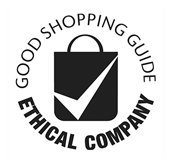How Did The Vagina Become The New Commercial Frontier?
With the world’s first Vagina Museum opening in London this month and Pussy Power bags spotted on the catwalks, it feels like vaginas are clearly having a moment. At Mooncup ltd. we of course couldn’t be happier about this – after all, chipping away at the taboos surrounding vaginas and periods has been our mission from day one.
Vagina accessories… Vulva cleaning products…
Along with the changing attitudes, a whole new industry has sprung up to sell us more and more products to care for our vulvas and vaginas. You can buy a refreshing beauty mist for your vulval area or an exfoliator for your vagina. You can purchase “passion dust”: glitter capsules which dissolve inside your vagina and turn your natural discharge into errr, sparkly discharge.
All these products are of course unnecessary. According to gynaecologists they can potentially do more harm than good. All you need for cleaning your vulva is water, and if you really want to some mild, unperfumed soap.
“Intimate cleaning” products are also widely condemned by feminists for the message they send: that there is something wrong with your vulva or vagina in its natural state. That vaginas are smelly. That your vagina may not be normal.
“Feminine hygiene washes and sprays use destructive messaging that the way women are normally is problematic when it is not”, says obstetrician and gynaecologist Dr Jen Gunter, the author of The Vagina Bible. Gunter has been vocal in calling out this “internalised misogyny” and creating fears to sell us unnecessary and expensive products.
Then there is vaginal steaming, endorsed by Gwyneth Paltrow and her lifestyle site Goop but widely discredited by health professionals. Vaginal steaming involves squatting over a steaming pot of herbs to cleanse your vagina from imaginary toxins.
Paltrow herself admits that coverage disputing the medical claims of treatments recommended by Goop are creating what she calls “cultural firestorms” bringing more traffic to her site. As journalist Taffy Brodesser-Akner explains in The New York Times Magazine, “Goop had learned to do a special kind of dark art: to corral the vitriol of the internet and the ever-present, shall we call it cultural ambivalence, about Gwyneth Paltrow herself, and turn them into cash.“
Why are we accessorising periods?
So, what’s our position here at Mooncup Ltd, as the vagina appears to be becoming one of the new commercial frontiers? As an ethical business, we’ve been working to break the taboos since 2002; well before vaginas and periods were clickbait.
The Mooncup® menstrual cup was developed as a reusable solution which minimises waste and the impact of throwaway menstrual products on the environment. As an ethical business we don’t recommend that Mooncup users replace their cup if it’s not necessary. Unlike other menstrual cup manufacturers who suggest replacing a cup every one or two years, with proper care, a high-quality menstrual cup like the Mooncup should last for years and years.
We occasionally also get asked if we’re planning to make the Mooncup® menstrual cup in different colours or develop repeat purchase items like wipes for cleaning the cup. The answer is no for both environmental and ethical reasons. As consumers, we are always being encouraged to buy more products. The Mooncup gives you a chance to step out of the cycle of consumerism in at least one area of your life. We also believe adding colour to the Mooncup would make something beautifully simple into something unnecessarily complicated. We aren’t looking to boost our profits by making wipes for cleaning your cup either – because they are just not needed.
We wish you a happy black Friday. Let’s make it a buy nothing day!
Read more on the Mooncup Blog
How is the Mooncup® menstrual cup environmentally friendly? 10 reasons
Menstrual cup myths. What to look out for when choosing a menstrual cup
How Mooncup are turning the tide on plastic





